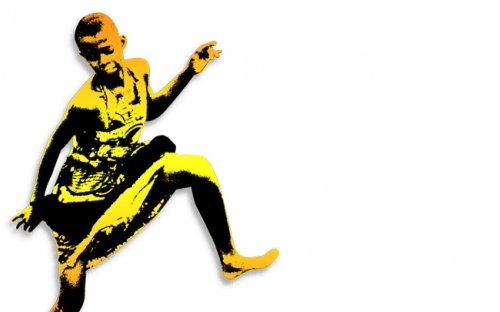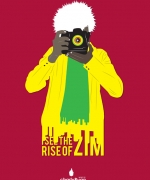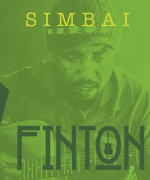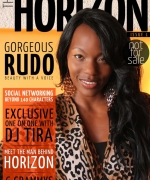Fire Dance
Thing is, this was not a onetime occurrence. This is what I do and it is on this that my street cred (which really doesn’t amount to much to be honest) in hippie central, Obz, has been founded but although this was the case in Cape Town, it’s not so in Zimbabwe. This is because there is just so much pressure not to. What with respectability politics and all. Heaven forbid a thirty year old gogo-stina like myself be seen lahlaring her mlenze (ngoba phela mina ngiyawuphosa umlenze wam’ shem) as though she were some “ratchet” 20 year old right? Well no, not really. I don’t really subscribe to respectability politics. It’s mostly because I am yet to find a place in Harare that isn’t my sister’s living room that jams the type of music I would break out into my fire dance a la Fela’s Queen Troupe style to. There is something to be said about my claims about propriety dictates in Harare’s primarily middle class social environs though, so although it’s not important to me, according to the general consensus in our society, it should be.
The kind of dancing I did at my local dives in Cape Town would, for all intents and purposes, be deemed “unladylike” in a lot of the lounges and clubs springing up rather exponentially in Harare’s “up-town”. It would be straight up ripe for the picking for all the slut and ghetto shamers in these places.
As both a woman’s rights activist and a black consciousness activist I was often very conflicted by my unabashed love for Kuti’s (in)famous song, which has been redone and sampled by artists like Bra Hugh Masekela, Akua Naru & Angelique Kidjo as well as Wizkid featuring Femi Kuti as it can rightly be interpreted as misogynistic. How I have managed to justify my continued love for Kuti’s song is by doing the work of trying to learn and understand our pre-colonial identities as Afrikan peoples and in particular, the Yoruba people of Nigeria as far as possible.
I’ve realised that our definitions of masculinities and femininities and the roles allocated therein were not necessarily the same as we understand them today as their definitions are deeply rooted in a Western understanding of sex, gender and sexuality. This, however, is not to say that the song is beyond reproach as it surely isn’t, neither is Kuti himself – because let’s face it, he was a bit of a douchebag to the women in his life - but I also believe it can still be revered as one that seeks to redirect, albeit inadvertently, the conversation around women’s empowerment from the current single narrative of “an empowered Afrikan woman is a westernised woman” by acknowledging empowerment in the otherised Afrikan female traditional identities.
Of course, context and nuance need to be taken into consideration and far be it from me to come across as though I am trying to create a revisionist and romanticised history of the gender relations in our societies but it’s about time we start seriously looking for alternative narratives and unbiased historical accounts not written by prejudiced outsiders. We must seriously consider the possibility of the existence of agency and empowerment within the otherised Afrikan woman who does not neatly fall into the box of westernised, progressive, educated, liberal and more importantly, feminist.
One thing we must remember as young Afrikans grappling with the issue of identity in a liberated and modern Afrika (and I use the word liberated very loosely here) is that when our colonisers came over a century ago they found us doing “us”, complete in our “nakedness” and “sexualness” and they deemed it a sort of buggery and quickly got down to the business of erasing it. They imposed their cultures on us, redefinining morality and propriety for us to suit their ways and it is this legacy we still sit with today where we define civilisation, sophistication and appropriateness according to those standards. One aspect of Eurocentric culture which might seem harmless enough is the concept of being a lady (and being a gentleman – of which by the way, Kuti also addresses in the song Gentleman).
The trouble with this is that it not only reinforces sexist dictates of what is considered a respectable woman but it also reinforces racist ideas of the same as well as classism which entrenches socio-economic discrimination and exclusion in our societies. It’s usually middle class cis-het women; and when it’s brown women, women who have internalised whiteness as it were; who are referred to as ladies in a seal of approval sort of way. In the song, Kuti, condemns these notions of superiority and instead chooses to celebrate the often times marginalised and disenfranchised other type of Afrikan woman, albeit problematically.
There persists an incessant desire amongst us to achieve Euro-centred “respectability” which only serves to increasingly ostracise certain populations of the Afrikan community. Dance as a form of expression has at intervals taken centre stage in conversations around respectability politics. I have in the last few years attended a few traditional spiritual ceremonies and I can tell you that the dancing that takes place there is anything but “ladylike” by any stretch of the imagination, yet it remains beautiful, graceful, powerful, dignified and organic. It is from experiencing the sacredness of movement in the culture of our various ancestors, be they Swazi, or Zulu or Venda or Rozvi that I have come to realise that it doesn’t matter what music you’re dancing to, the same unspoken rule appears to apply: “let the music commune with your body and set you free.”
In my opinion, dancing across most Afrikan cultures has always been lively, energetic and communicative or as the “morality” police would like to call it, “suggestive”. Our dances carry deep spiritual meanings and we have different dances for different occasions and settings, both sad and joyous. Our dances celebrate every part of ourselves by drawing focus on different parts of our bodies which individually and collectively convey whatever emotion or thought we are trying to express at that time.
When the beat drops, as it were, we instinctively move in unison with the rhythm flowing out because we become one with it. It ceases to be something that takes place outside of us but becomes something that happens within us. It ceases to be our bodies that dance to the music but it becomes the music that dances to our bodies. I imagine that what the thousands of pre-colonial nations a.k.a. tribes have always known is that we do not listen to the music with our ears but with the soles of our feet as the music does not gravitate towards us through the air but through the earth but we have forgotten this. We no longer commune with the spirit of the rhythm and the earth and instead reduce it to a mere engagement with sound requiring structure. We have become conscious of our movement and have stopped listening with our feet and our hearts and now listen with our ears and our minds and put limitations on our bodies because they have to abide by the dictates of the terms imposed on us. Terms like lady and civilised.
Please don’t get me wrong? I am not saying that there is anything wrong with Afrikan women who choose to identify as ladies; to them I say “Get down with your bad self girl child.” Ini zvangu, I know to chew with my mouth closed (most times) and which item of cutlery is for which course of the meal (and when no cutlery is involved, to use my right hand in some communities and my left in others) and to say “please, thank you and excuse me” and that in my opinion, should suffice in making me passable company in any sort of setting. Everything else that comes along with the title lady is way too much pressure for me to be something I am not as an individual and something that is not necessarily a priority aspiration or achievement to me as a brown skinned Afrikan woman in general so if it’s all the same to everyone, I shall continue my search for my true uhuru. Along the way, I shall guffaw at will, chew my chicken bones when it so behoves me, drink my beer out of the bottle and shake my almost none existent butt to the beat of the drum. The way I see it, the fire dance is as good and as dignified as any other dance out there.




